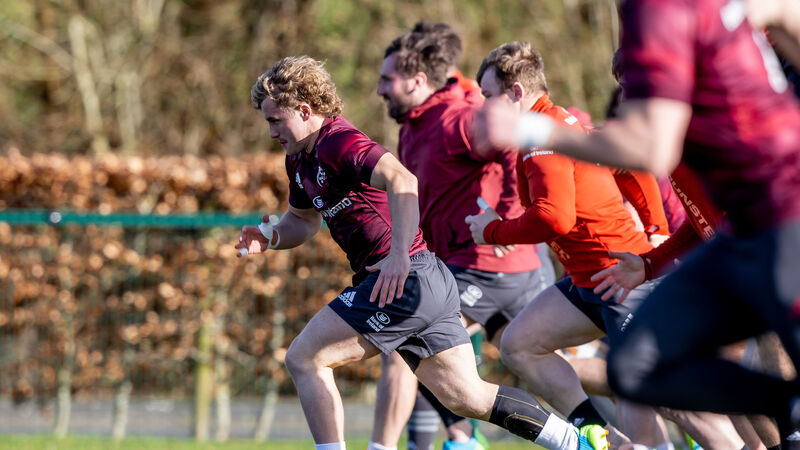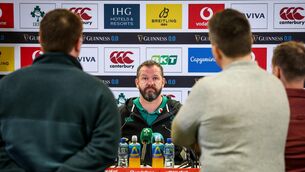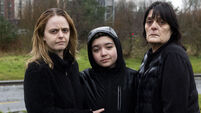Donal Lenihan: Has the time come to put faith in Harry Byrne and Craig Casey?

Craig Casey leads the way during a Munster training session yesterday. With an eye to the future, Donal Lenihan believes Casey and Harry Byrne warrant an appearance off the bench in the closing stages in Rome where Ireland travel to face Italy in their next Six Nations clash Saturday week.
AT a point in the championship when Andy Farrell has to consider where he’s going to turn to next in the search for incremental improvement, it’s worth taking note that the star of last weekend's Six Nations action was a young lad who turned 20 just five days before facing Ireland on the opening weekend in Cardiff.
Louis Rees-Zammit had been identified as a serious talent from the moment he became the youngest player, at 18, to play for Gloucester in the Gallagher Premiership.










